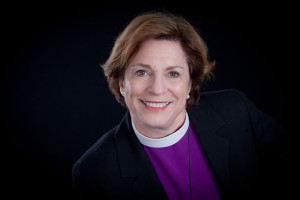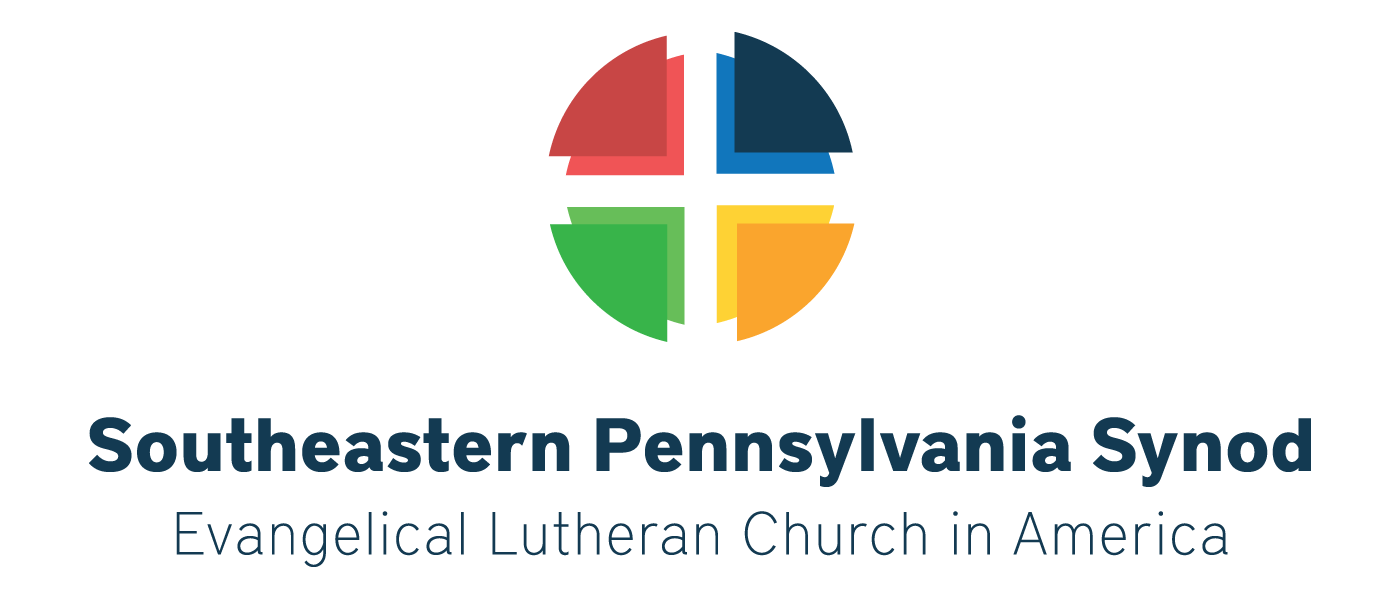June 15, 2014 in Bishop, Bishop messages
Pastoral Letter: Same-Gender Marriage and the Church

In a pastoral letter to the Synod, Bishop Claire Burkat addresses the implications of the recent court decision lifting Pennsylvania’s ban on same-gender marriage, and the Corbett Administration’s decision not to appeal it, which makes same-gender marriages legal in the commonwealth. As congregations may choose to perform such marriages legally, the bishop writes, “I believe the question for each rostered leader and for congregational leaders is this: How do we most faithfully attend to the ministry we are given in our own local contexts?”
Following is the text of the bishop’s pastoral letter and a link to frequently asked questions and answers on this subject:
Same-Gender Marriage and the Church
A Pastoral Letter from Bishop Claire Burkat
June 3, 2014
For in the one Spirit we were all baptized into one body — Jews or Greeks, slaves or free — and we were all made to drink of one Spirit. — 1 Corinthians 12:13
Dear sisters and brothers in Christ:
As the result of a ruling by the United States District Court on May 20, 2014 and an announcement by Governor Corbett that his administration will not seek an appeal, same-gender marriage is legal in the Commonwealth of Pennsylvania. This makes Pennsylvania the 19th State to legalize same gender marriages. What, if anything, does this mean for the pastors, lay leaders, and congregations of the Southeastern Pennsylvania Synod, Evangelical Lutheran Church in America?
These changes in civil law and practice have presented a new challenge to ELCA pastors and congregations who are seeking the best ways to provide pastoral care for all to whom they minister. Though there are differing understandings about the place of such relationships within the Christian community, we now have in the congregations of our synod members whose same-gender relationships reflect the fidelity, monogamy, and holy love that we ask God to bless in the marriages of men and women, but whose unions their pastors, even if they were willing, have not previously been allowed to make legal.
The ELCA social statement Human Sexuality: Gift and Trust, which speaks to the church’s teachings on marriage, was passed in 2009. Much has changed since then in the United States in respect to acceptance of same-gender unions by the general public. If your congregation has not already done so, this summer would be a good time to study and discuss the document, especially in light of the new Pennsylvania ruling. It is available online at www.elca.org/socialstatements.
Human Sexuality: Gift and Trust recognizes that in the ELCA we are not of one mind on the question of same-gender marriage. Our commitment to one another is to be respectful of various perspectives, and accepting of differing practices. While affirming that “marriage is a covenant of mutual promises, commitment, and hope authorized legally by the state and blessed by God,” some in this church believe that marriage is an appropriate term for same gender couples in the same way it has always been in the historic Christian tradition of marriage as a covenant between a man and a woman. The 2009 Churchwide Assembly actions left the question of recognition and support of same-gender couples to local congregations and pastors.
Until this very recent legal decision same-gender marriage was not an option in Pennsylvania. Now, however, as the legal ban has been lifted in our state, congregations that choose to do so may marry same-gender couples.
So I believe the question for each rostered leader and for congregational leaders is this: How do we most faithfully attend to the ministry we are given in our own local contexts?
Here are issues to discuss and consider in your faith community:
- Pastors cannot and will not be required to preside at the marriage of any couple, opposite-gendered or same-gendered. Yet we need to also keep in mind that pastors are not free agents; they are called by congregations and in some cases by the synod council or the Churchwide organization. Pastors should have conversation about their approach to this issue with their congregation or calling body. We do not understand ministers of the gospel to act on their own authority, but in accordance with the rites and polities of the ELCA.
- Your congregation as a whole may already be clear about whether you do, or do not, wish to celebrate marriages of same-gender couples. However, this is a decision your congregation is called to make. Know that all of us in the Southeastern Pennsylvania Synod will respect your decision on this matter – whether you choose to marry same-gender couples or not. I trust pastors and councils to discern this ministry for their congregations.
- You already have a ministry of marriage in your congregation. Most congregations leave the decision of who to marry up to the pastor. You may have a wedding coordinator, guidelines for pre-marital counseling, rules about photography or music appropriate for wedding ceremonies, etc. I don’t know that any of this needs to change, but I encourage you as pastors and councils to review your practice in light of this new freedom under the law to marry same-gender couples.
- If you need assistance in discussing or deciding this issue please call my office and I will put you in touch with persons who are willing to come to your congregation to help facilitate discussion.
- My experience with congregations that have offered same-gender rites of blessing or marriage has been that both the couple and the congregation have felt deeply blessed. If there were friends, family or members of these congregations who had reservations they either did not attend, or simply chose to respect the decision of others in the congregation. I encourage the maturity of all involved. If you wish to talk to other congregations or pastors who offer this ministry call the Synod office and we will be glad to offer you a referral.
For now, let me simply say again that we in the Southeastern Pennsylvania Synod will undoubtedly be making different decisions around this opportunity. I give thanks for being part of a church that has chosen to recognize and respect a diversity of practice. Some congregations will be offering same-gender marriage services and some will not. The decision is yours to make. Some will be glad to allow their pastors to use their own judgment in this matter, and some may choose to have broader, congregational conversations.
We acknowledge that faithful people can and will come to different conclusions about what constitutes responsible action in response to same-gender couples seeking recognition for their relationships. We seek through this guidance to see these differences as a gift to be celebrated as we live out that which unites us: the mercy and grace of Jesus Christ who leads us into mission and ministry in the world. “For in the one Spirit we were all baptized into one body”
May God continue to guide and bless us all in new times and opportunities!
In Christ,
The Rev. Claire S. Burkat
Bishop, Southeastern Pennsylvania Synod ELCA

